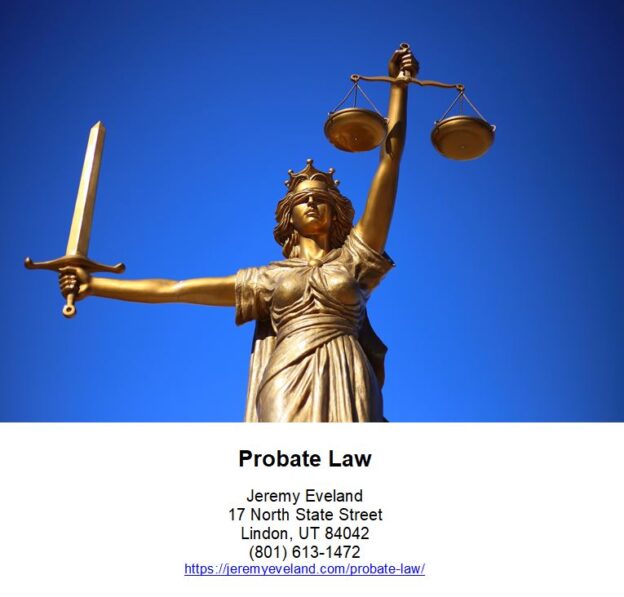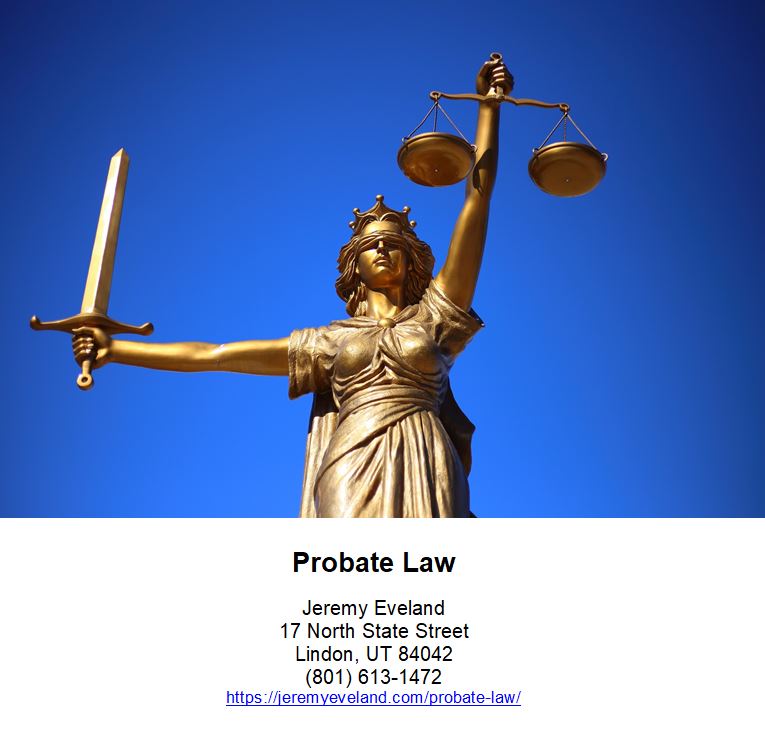-
Attorney at Law
- Introduction
- What Are the Tax Implications of Trusts?
- Exploring the Subordinate Legislation of Trusts
- How to Avoid Personal Liability as a Trustee
- What Are the General Powers of a Trustee?
- Exploring the Exclusion Clause in Trust Documents
- What Are the Fiduciary Duties of a Trustee?
- Understanding the Standard Investment Criteria for Trustees
- Exploring the Powers and Duties of Trustees Under the Trustee Act 2000
- Why You Should Hire an Estate Lawyer To Help You With a Trust
“Trustee Powers and Duties: Protecting Your Assets and Your Rights”
Introduction
Trustee powers and duties are an important part of the legal framework that governs the relationship between a trustee and the beneficiaries of a trust. A trustee is a fiduciary who is responsible for managing the trust assets and carrying out the wishes of the trust creator. The trustee has a duty to act in the best interests of the beneficiaries and to manage the trust assets prudently. The trustee also has certain powers that allow them to make decisions and take action on behalf of the trust. This article will provide an overview of trustee powers and duties, including the fiduciary duties of a trustee, the powers of a trustee, and the limitations on a trustee’s powers.
What Are the Tax Implications of Trusts?
Trusts are a common estate planning tool used to manage assets and provide for beneficiaries. While trusts can be beneficial for estate planning, they also have tax implications that must be considered.
Trusts are subject to income tax, and the trust itself is responsible for filing a tax return. The trust must report all income, deductions, and credits to the Internal Revenue Service (IRS). Depending on the type of trust, the income may be taxed at the trust level or the beneficiary level.
Income taxed at the trust level is subject to the highest tax rate, which is currently 37%. Trusts may also be subject to the 3.8% net investment income tax. Trusts may also be subject to state income taxes.
Trusts may also be subject to estate taxes. The federal estate tax exemption is currently $11.58 million per person, and the top estate tax rate is 40%. Some states also impose estate taxes.
Trusts may also be subject to gift taxes. The federal gift tax exemption is currently $15,000 per person per year. The top gift tax rate is 40%. Some states also impose gift taxes.
Trusts can be a useful estate planning tool, but it is important to understand the tax implications of trusts before setting one up. It is also important to consult with a qualified tax professional to ensure that the trust is set up correctly and that all applicable taxes are paid.
Exploring the Subordinate Legislation of Trusts
Trusts are a legal arrangement that allows a person or organization to hold assets on behalf of another person or organization. The assets are held in trust for the benefit of the beneficiary, who is the person or organization that will receive the benefit of the trust. Trusts are governed by a variety of laws, including state and federal laws, as well as the terms of the trust itself.
The laws that govern trusts are known as subordinate legislation. Subordinate legislation is a type of law that is created by a government body, such as a legislature or court, to supplement or modify existing laws. Subordinate legislation is often used to provide more specific guidance on how a law should be applied in a particular situation.
When it comes to trusts, subordinate legislation is used to provide guidance on how the trust should be administered, how the assets should be managed, and how the trust should be terminated. Subordinate legislation also provides guidance on how the trust should be taxed, how the trust should be funded, and how the trust should be distributed.
Subordinate legislation can be found in a variety of sources, including state statutes, federal regulations, and court decisions. It is important to understand the specific laws that apply to a particular trust in order to ensure that the trust is administered properly.
In addition to the laws that govern trusts, there are also a variety of other documents that are used to create and administer trusts. These documents include trust agreements, trust deeds, and trust instruments. These documents provide additional guidance on how the trust should be administered and how the assets should be managed.
It is important to understand the subordinate legislation that applies to trusts in order to ensure that the trust is administered properly and that the assets are managed in accordance with the terms of the trust. Understanding the subordinate legislation of trusts can help to ensure that the trust is administered in a manner that is consistent with the wishes of the settlor and the beneficiaries.
How to Avoid Personal Liability as a Trustee
As a trustee, it is important to understand the legal responsibilities and liabilities associated with the role. To avoid personal liability, trustees should take the following steps:
1. Understand the Trust: Before accepting the role of trustee, it is important to understand the terms of the trust and the duties and responsibilities associated with the role.
2. Follow the Trust Document: Trustees should follow the terms of the trust document and act in accordance with the wishes of the grantor.
3. Act in Good Faith: Trustees should act in good faith and with the best interests of the beneficiaries in mind.
4. Keep Records: Trustees should keep accurate and detailed records of all transactions and decisions made on behalf of the trust.
5. Seek Professional Advice: Trustees should seek professional advice when necessary to ensure that all decisions are made in accordance with the law.
6. Avoid Conflicts of Interest: Trustees should avoid any conflicts of interest and should not use the trust for their own personal gain.
7. Comply with Tax Obligations: Trustees should ensure that all tax obligations are met in a timely manner.
By following these steps, trustees can help to ensure that they are not held personally liable for any decisions or actions taken on behalf of the trust.
What Are the General Powers of a Trustee?
A trustee is a fiduciary who holds legal title to property for the benefit of another person or entity, known as the beneficiary. The trustee is responsible for managing the trust assets and carrying out the terms of the trust. Generally, trustees have the following powers:
1. Investment Powers: Trustees have the power to invest trust assets in accordance with the terms of the trust. This includes the power to buy and sell stocks, bonds, mutual funds, and other investments.
2. Distribution Powers: Trustees have the power to make distributions from the trust to the beneficiaries in accordance with the terms of the trust.
3. Administrative Powers: Trustees have the power to manage the trust assets, including the power to open and maintain bank accounts, pay bills, and file taxes.
4. Discretionary Powers: Trustees may have the power to make discretionary decisions regarding the trust assets, such as deciding when and how to make distributions to the beneficiaries.
5. Amendment Powers: Trustees may have the power to amend the trust, as long as the amendment is consistent with the terms of the trust.
6. Termination Powers: Trustees have the power to terminate the trust, as long as the termination is consistent with the terms of the trust.
Trustees are held to a high standard of care and must act in the best interests of the beneficiaries. As such, trustees must exercise their powers in a prudent and responsible manner.
Exploring the Exclusion Clause in Trust Documents
Trust documents are legal documents that are used to protect the interests of the trustor, or the person who creates the trust. An exclusion clause is a provision in a trust document that allows the trustor to exclude certain assets from the trust. This clause can be used to protect the trustor’s assets from creditors, or to ensure that certain assets are not subject to the terms of the trust.
The exclusion clause is an important part of a trust document, as it allows the trustor to protect certain assets from the trust. This clause can be used to protect assets from creditors, or to ensure that certain assets are not subject to the terms of the trust. The exclusion clause can also be used to protect the trustor’s assets from being used for purposes other than those specified in the trust document.
When drafting a trust document, it is important to consider the exclusion clause carefully. The exclusion clause should be written in a way that clearly states which assets are excluded from the trust. It should also be written in a way that is easy to understand and enforce.
When drafting an exclusion clause, it is important to consider the purpose of the trust. For example, if the trust is intended to protect the trustor’s assets from creditors, the exclusion clause should be written in a way that clearly states which assets are excluded from the trust. If the trust is intended to ensure that certain assets are not subject to the terms of the trust, the exclusion clause should be written in a way that clearly states which assets are excluded from the trust.
It is also important to consider the potential implications of the exclusion clause. For example, if the exclusion clause is too broad, it may be difficult to enforce. Additionally, if the exclusion clause is too narrow, it may not provide the protection that the trustor intended.
When drafting an exclusion clause, it is important to consult with an experienced attorney. An attorney can help ensure that the exclusion clause is written in a way that is clear and enforceable. Additionally, an attorney can help ensure that the exclusion clause is tailored to the specific needs of the trustor.
The exclusion clause is an important part of a trust document, and it is important to consider it carefully when drafting a trust document. An experienced attorney can help ensure that the exclusion clause is written in a way that is clear and enforceable, and that it is tailored to the specific needs of the trustor.
What Are the Fiduciary Duties of a Trustee?
A trustee is a fiduciary who is responsible for managing the assets of a trust for the benefit of the trust’s beneficiaries. As a fiduciary, a trustee has a legal obligation to act in the best interests of the trust and its beneficiaries. This obligation is known as the fiduciary duty of loyalty.
The fiduciary duty of loyalty requires a trustee to act in good faith and with the utmost care, loyalty, and impartiality when managing the trust’s assets. This means that a trustee must not use the trust’s assets for their own benefit or the benefit of any other person or entity. A trustee must also avoid any conflicts of interest and must not engage in any self-dealing.
In addition to the fiduciary duty of loyalty, a trustee also has a duty to act prudently when managing the trust’s assets. This means that a trustee must exercise reasonable care, skill, and caution when making decisions about the trust’s assets. A trustee must also keep accurate records of all transactions and must ensure that the trust’s assets are invested in a prudent manner.
Finally, a trustee has a duty to act impartially when making decisions about the trust’s assets. This means that a trustee must not favor one beneficiary over another and must treat all beneficiaries equally. A trustee must also ensure that all beneficiaries are informed of their rights and must provide them with all relevant information about the trust.
In summary, a trustee has a legal obligation to act in the best interests of the trust and its beneficiaries. This obligation includes the fiduciary duties of loyalty, prudence, and impartiality. A trustee must act in good faith and with the utmost care, loyalty, and impartiality when managing the trust’s assets. A trustee must also exercise reasonable care, skill, and caution when making decisions about the trust’s assets and must act impartially when making decisions about the trust’s assets.
Understanding the Standard Investment Criteria for Trustees
Trustees of a trust are responsible for making decisions about investments on behalf of the trust. To ensure that these decisions are made in the best interests of the trust, trustees must adhere to a set of standard investment criteria.
The first criterion is that trustees must act with prudence and diligence. This means that trustees must exercise the same degree of care, skill, and caution that a prudent person would use in managing their own investments. Trustees must also consider the trust’s objectives, the risk associated with the investment, and the trust’s financial resources.
The second criterion is that trustees must diversify investments. This means that trustees should not put all of the trust’s assets into one type of investment. Instead, trustees should spread the trust’s assets across different types of investments, such as stocks, bonds, and cash. This helps to reduce the risk of loss if one type of investment performs poorly.
The third criterion is that trustees must consider liquidity. This means that trustees should ensure that the trust has enough liquid assets to meet its short-term needs. Liquid assets are those that can be quickly converted into cash, such as stocks and bonds.
The fourth criterion is that trustees must consider the trust’s tax position. This means that trustees should consider the tax implications of any investment decisions they make. For example, some investments may be subject to capital gains tax, while others may be exempt.
Finally, trustees must consider the trust’s long-term objectives. This means that trustees should consider the trust’s goals for the future and make investments that will help the trust achieve those goals.
By following these standard investment criteria, trustees can ensure that they are making decisions that are in the best interests of the trust.
Exploring the Powers and Duties of Trustees Under the Trustee Act 2000
Trustees are responsible for managing the assets of a trust, and they are subject to the Trustee Act 2000. This Act outlines the powers and duties of trustees, and it is important for trustees to understand their obligations under the Act.
The Trustee Act 2000 outlines the powers of trustees. These powers include the ability to invest trust assets, to borrow money, to make payments, and to enter into contracts. Trustees also have the power to appoint agents and to delegate certain duties to them. Trustees also have the power to make decisions about the trust’s assets, and to make distributions to beneficiaries.
The Trustee Act 2000 also outlines the duties of trustees. These duties include the duty to act in the best interests of the beneficiaries, to act with reasonable care and skill, to act honestly and in good faith, and to avoid conflicts of interest. Trustees must also keep accurate records of the trust’s assets and transactions, and they must keep beneficiaries informed of the trust’s activities.
Trustees must also comply with the terms of the trust deed. This document outlines the purpose of the trust, the powers of the trustees, and the rights of the beneficiaries. Trustees must also comply with any applicable laws and regulations.
The Trustee Act 2000 also outlines the liabilities of trustees. Trustees are liable for any losses or damages caused by their breach of duty or negligence. They are also liable for any taxes or other liabilities arising from the trust’s activities.
In summary, trustees have a number of powers and duties under the Trustee Act 2000. It is important for trustees to understand their obligations under the Act, and to ensure that they comply with the terms of the trust deed and any applicable laws and regulations.
Why You Should Hire an Estate Lawyer To Help You With a Trust
When it comes to managing a trust, it is important to have the right legal guidance. An estate lawyer can provide invaluable assistance in helping you to understand the complexities of trust law and ensure that your trust is properly managed. Here are some of the reasons why you should hire an estate lawyer to help you with a trust.
First, an estate lawyer can help you to understand the legal requirements of setting up and managing a trust. Trusts are complex legal documents that require a thorough understanding of the law. An estate lawyer can provide you with the necessary guidance to ensure that your trust is properly established and managed.
Second, an estate lawyer can help you to ensure that your trust is properly funded. A trust must be funded in order to be effective. An estate lawyer can help you to determine the best way to fund your trust and ensure that it is properly managed.
Third, an estate lawyer can help you to ensure that your trust is properly administered. A trust must be administered in accordance with the terms of the trust document. An estate lawyer can provide you with the necessary guidance to ensure that your trust is properly administered.
Finally, an estate lawyer can help you to ensure that your trust is properly distributed. A trust must be distributed in accordance with the terms of the trust document. An estate lawyer can provide you with the necessary guidance to ensure that your trust is properly distributed.
Hiring an estate lawyer to help you with a trust is a wise decision. An estate lawyer can provide you with the necessary guidance to ensure that your trust is properly established, funded, administered, and distributed. With the right legal guidance, you can ensure that your trust is managed in accordance with the law and that your beneficiaries receive the assets they are entitled to.
Areas We Serve
We serve individuals and businesses in the following locations:
Salt Lake City Utah
West Valley City Utah
Provo Utah
West Jordan Utah
Orem Utah
Sandy Utah
Ogden Utah
St. George Utah
Layton Utah
South Jordan Utah
Lehi Utah
Millcreek Utah
Taylorsville Utah
Logan Utah
Murray Utah
Draper Utah
Bountiful Utah
Riverton Utah
Herriman Utah
Spanish Fork Utah
Roy Utah
Pleasant Grove Utah
Kearns Utah
Tooele Utah
Cottonwood Heights Utah
Midvale Utah
Springville Utah
Eagle Mountain Utah
Cedar City Utah
Kaysville Utah
Clearfield Utah
Holladay Utah
American Fork Utah
Syracuse Utah
Saratoga Springs Utah
Magna Utah
Washington Utah
South Salt Lake Utah
Farmington Utah
Clinton Utah
North Salt Lake Utah
Payson Utah
North Ogden Utah
Brigham City Utah
Highland Utah
Centerville Utah
Hurricane Utah
South Ogden Utah
Heber Utah
West Haven Utah
Bluffdale Utah
Santaquin Utah
Smithfield Utah
Woods Cross Utah
Grantsville Utah
Lindon Utah
North Logan Utah
West Point Utah
Vernal Utah
Alpine Utah
Cedar Hills Utah
Pleasant View Utah
Mapleton Utah
Stansbury Par Utah
Washington Terrace Utah
Riverdale Utah
Hooper Utah
Tremonton Utah
Ivins Utah
Park City Utah
Price Utah
Hyrum Utah
Summit Park Utah
Salem Utah
Richfield Utah
Santa Clara Utah
Providence Utah
South Weber Utah
Vineyard Utah
Ephraim Utah
Roosevelt Utah
Farr West Utah
Plain City Utah
Nibley Utah
Enoch Utah
Harrisville Utah
Snyderville Utah
Fruit Heights Utah
Nephi Utah
White City Utah
West Bountiful Utah
Sunset Utah
Moab Utah
Midway Utah
Perry Utah
Kanab Utah
Hyde Park Utah
Silver Summit Utah
La Verkin Utah
Morgan Utah
Trustee Powers and Duties Consultation
When you need help with Trustee Powers and Duties call Jeremy D. Eveland, MBA, JD (801) 613-1472 for a consultation.
Jeremy Eveland
17 North State Street
Lindon UT 84042
(801) 613-1472
Related Posts
Business Succession Lawyer Spanish Fork Utah
Corporate Attorney St. George Utah
Business Strategy and Consulting
Business Succession Lawyer Roy Utah
Business Lawyer St George Utah
Estate Planning Lawyer Ogden Utah
Business Succession Lawyer Pleasant Grove Utah









